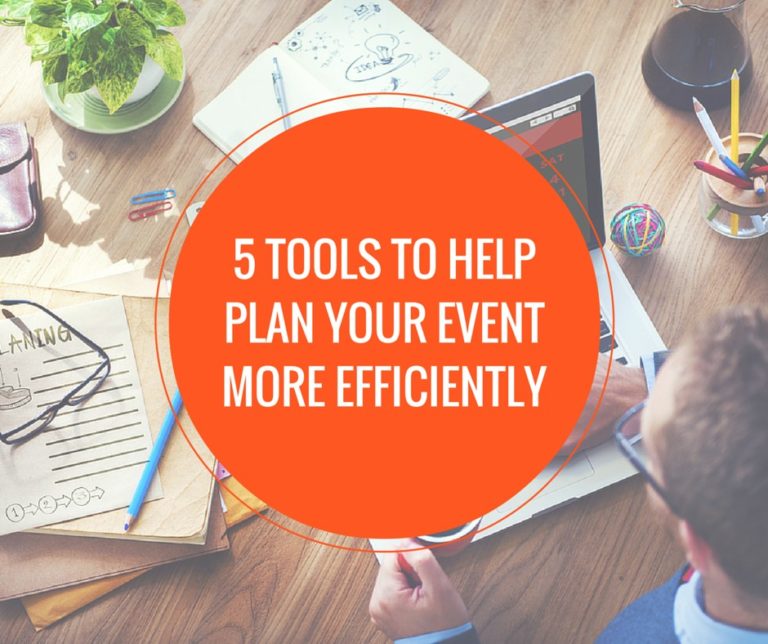You may have heard of an event tech stack, and may have even been told about how important it is to have when it comes to planning an event. But what exactly is an event tech stack and how does optimizing it lead to greater success for your event? From beginning to end, an event tech stack can make executing your event easier and more efficient. There are many factors to consider when building your stack, and we’re here to help you make the most out of your investment.
What is an Event Tech Stack?
Event tech is all of the technology that is needed to plan and execute your event. An event tech stack is when you combine all of your event tech into one solution or platform. Since there are often many components to planning and running an event, it is vital to have all of your tools in an easily accessible “tech toolbox.” Some common examples of event tools that could be found in an event tech stack are event management software, marketing software, registration platforms, and attendee engagement tools. An event tech stack is a way to guarantee efficiency in your planning process and can allow you to leverage collected data in order to create your most successful event yet.
The Factors You Should Consider Before Investing in Event Tech
Since all events require a different level of preparation and management, it is important to consider several factors before investing in the technology for your tech stack. Once you recognize the ins and outs of your event and what it will need to run efficiently, you will have a better understanding of what to include in your tech stack. Some factors that you can consider before investing in event tech are:
1. Types of Events That You Plan on Hosting
The type of events that you host plays a significant role in the tech stack that you need to build, as each format calls for a different set of tools. For example, if your events are primarily virtual, it would be beneficial for your stack to include tools like chatbots, online registration technology, and live-streaming software. Although these tools may be helpful for a virtual event, they may not be adequate for an in-person event. You must first decide on what tools are needed to make your event run smoothly. Then, build your solution based on that information, making sure that you don’t include tools that may not get used.
Aside from the online and in-person types of events, it is also important to consider the event category that you plan on hosting. Planning and executing events like festivals and fairs is quite different from hosting a business seminar. Each event category requires a different set of tools and levels of automation. Determine which tools are essential in running your event and create an event tech stack that involves them.
2. User Experience and Accessibility of Tools
Utilizing technology to enhance user experience is a great way to ensure the success of your event. After all, these users are what will determine your event’s success. With several attendees, it is vital to provide them with access to tools that will answer their questions, guide them in their experience, and provide them with the necessary information to be fully prepared for the event. Take the time to consider what tools are necessary to provide your attendees with the resources they need to enjoy your event.
3. Event Goals and Objectives
Your event goals and objectives should be a major driving factor when it comes to selecting your tools. When building your event tech stack, be sure to include technology that will help drive and monitor your goals and objectives. For example, if you are running a music festival and have the goal of driving sales, you would greatly benefit from utilizing event marketing software that will reach a wider audience and that monitors the number of ticket sales that come from your marketing efforts.
If your event is recurring, like an annual event, this is also a great opportunity for you to use the information and analytics from its previous renditions and adjust your plan accordingly. This will reveal areas of weakness and will ensure a constant stream of growth.
4. Scalability of Tools
When investing in tools for your event tech stack, you want to be sure that you can continue using them for all your future projects. As your event continues to grow, you’re going to want your software to grow with you, making the tech tools a lasting investment. Be sure that your chosen tools can adjust to the size, objective, and needs of your event.
5. Event Target Audience
Your target audience has a lot to do with how you choose to execute all the aspects of your event. For example, if your target audience includes tech-savvy teens, you most likely want to utilize online marketing tools to reach them where they are. Another way to utilize event tech tools is to analyze your target audience. Understanding the behavior of your audience will allow you to create an event that is perfectly tailored to meet your attendees’ needs.
The Event Tools You Need in Your Event Technology Stack
With event tech stacks becoming increasingly popular with leading companies thanks to their impact on workflow and overall cost-efficiency, there is no better time to start exploring the tools that will make your event a success. There are many tech tools to choose from and many platforms to consider. However, every event tech stack needs a few foundational tools. Some of the event tools that you should plan on incorporating into your tech stack are:
Event Management Software
Event management software is necessary if you want an easy way to create, market, run, and analyze your event in one place. This is a necessity for every event tech stack and should serve as the primary foundational aspect for every event planner. This will aid you in the entire lifecycle of your event, providing you with the essential services and data that you need to execute a successful event.
Some of the tools that can be found in event management software include event apps, access to data and analytics, help with organizing ticketing and registrations, and ways to communicate with attendees. Different platforms offer different levels of management, and this is something to consider when choosing the best event management software for your event. Overall, event management platforms should streamline the workload that is needed to organize your event. They should take all of the work that runs behind the scenes, monitor it, and render it easily executable so that you can focus on areas that technology cannot replace, like relationship building.
Event Marketing Automation Software
With so many moving parts in creating and executing an event, you want to save time where you can. This is made easy with automation tools like marketing automation software. Event marketing is necessary for ensuring a successful turnout, but manually managing it can be quite time-consuming. Event marketing automation software will allow you to automate important marketing measures, like sending out reminders before and thank you texts after the event. Any automation software that you implement into your tech stack should make your job easier by making otherwise repetitive tasks run without your constant supervision.
Hybrid or Virtual Event Platform
Utilizing hybrid and virtual events has proven to be beneficial, especially in a post-COVID world where people are more inclined to participate in online settings. A current survey found that 34% of event organizers in the events industry plan on incorporating a hybrid event experience in the near future, which speaks volumes of the benefits that come from hosting on a virtual platform. Incorporating a hybrid or virtual event platform will also allow you to reach a wider audience without the extra spending that comes with in-person events (venues, refreshments, and event workers). When building your event tech stack, be sure to implement a hybrid or virtual event platform so that you can take full advantage of your event’s reach.
Collaborative Tools
Your entire team will be working hard to create a memorable event, which is why including a collaborative tool into your tech stack is a smart move. Events require a number of people that are branched out and are working on different parts of the planning process, which can become difficult to keep up with. Collaborative tools allow every member of your team to work together, communicate, and stay up-to-date on event progress. It will also allow for event organizers to easily access information on the logistics of the event and focus their efforts on areas that might be lacking. These tools can include task checklists, message boards, and a collection of content that can be shared amongst the team.
Invest in a Complete Event Tech Solution
Putting together an event is no easy feat. It involves great attention to detail, several moving parts, and all hands on deck. In a world where most things have a presence online and automation has taken over, building an event tech stack has become key for event planners. Event tech stacks allow event planners to delegate tasks, organize logistics, communicate with attendees, and monitor the overall success of the event throughout its lifecycle.
With so many tech tools to choose from, we wanted to be sure that you felt prepared and informed when it comes to building your event tech stack. Every investment as an event planner is crucial, and it’s important that you find an event tech solution that best suits your goals. Our event management software is made to fit your needs when it comes to event planning. Head over to our website, create your event in minutes, and have all of the latest event technology at your fingertips!







